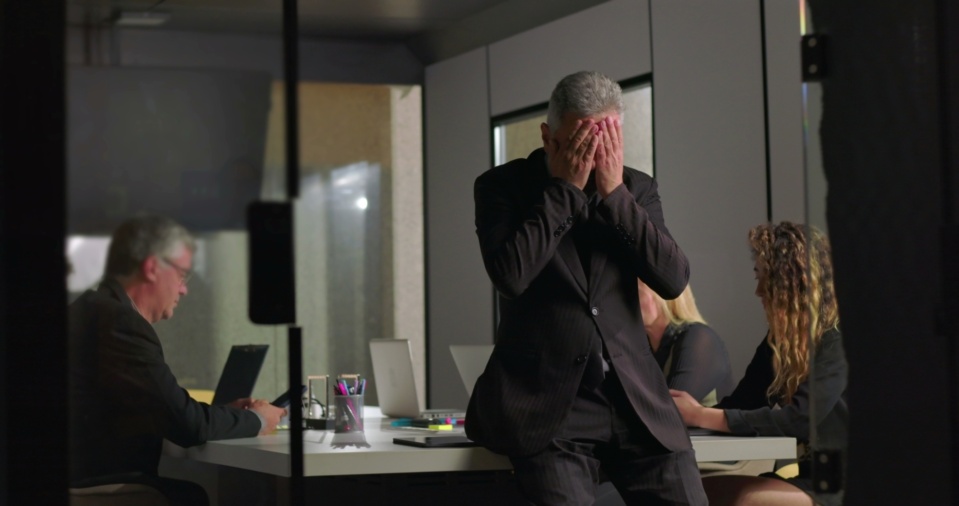
Why meetings can harm employee well-being
Posted on 10 Dec 2025
Anyone working in an organisation knows it: meetings follow one after another at a frantic pace. On…
Posted on 10 Oct 2024
By Adele Stowe-Lindner

Activism has always played a part in shaping government policies, communities and businesses. It has made our world the place it is today and has been the force behind many great leaps forward in social and other policy.
Activism in my own family has had multigenerational effects. My father, Stephen Lindner, came to Australia as a child, a stateless refugee without a passport or any documentation, after waiting in Belgium for someone to sponsor him to go to any country at all. He got into both Venezuela and Australia because a member of the public, part of a group, volunteered to sponsor him. What a form of activism!
In the early 1970s my father was part of the group that started the Fitzroy Legal Service in Melbourne, the result of a huge activist effort.
And my family currently supports a tiny group that sponsors a refugee family to settle in Australia. It’s part of a visa sponsorship trial, to help demonstrate that the system can work.
Activism is indispensable in moving our community forward.
In recent times – perhaps as boundaries between work and home life have melted and meshed, perhaps as “authenticity” has grown as a concept and become part of the language of leadership – activism has gained a foothold in the workplace too.
Activism by customers, service users and stakeholders is challenging traditional governance models, driving significant changes in how organisations operate and engage with their communities. Leaders must now navigate a complex environment where institutional policies, employee emotions, misinformation, disinformation and customer pressure combine to influence decision making. In this environment, not saying anything constitutes saying something.
Where does personal activism end and workplace activism start? The following activities all constitute workplace activism:
Of course, in many organisations, only some or none of these activities would trouble staff, volunteers or leaders. Every organisation has a different mission, and a different culture. For good governance, it’s important that everyone in the workplace knows what that mission and culture are, and it’s important for leaders to communicate them, so everyone knows what’s not on, what’s okay, and maybe even what’s actively desirable.

Why are we talking about this? Because increasingly, it’s a source of tension. Some generations expect to be able to bring their causes to work; some staff expect their employer to take a stand on the issue of the day even if it isn’t related to the mission of the workplace; some are even leaving because of workplace action or inaction on these issues. With these things in mind, enabling workplace activism can increase staff morale and engagement, reinforce the authenticity of your brand (if it aligns with the organisation’s mission and vision) and attract socially conscious consumers, volunteers and donors.
It can also go horribly wrong. The Melbourne Symphony Orchestra (MSO) and the Sydney Theatre Company (STC) are in the news often, and not for the music and theatre they produce. The MSO’s mission statement says, “Through the shared language of music, we create meaningful cultural experiences for our audiences, delivered to the highest possible standard.”
You would not know this by opening the country’s big daily newspapers, to read of MSO representatives busier with talking about the war in Gaza than talking in the shared language of music. The MSO’s vision is “Enriching lives through music,” but it is currently in the media spotlight for other reasons altogether.
The individual activism that brought the MSO into the news had no roots in the MSO’s mission, vision or values. While many organisations encourage activism in their mission, vision and policies, the MSO’s guiding principles give no suggestion that individual activism should be a key focus for MSO employees at work:
The orchestra’s website says, “Committed to shaping and serving the state it inhabits, the Melbourne Symphony Orchestra is Australia’s preeminent orchestra and a cornerstone of Victoria’s rich, cultural heritage.” Clearly, its focus is very local, on the state it inhabits, rather than on world events.
"A leader’s role is to see beyond the horizon, to think strategically, to consider the whole community. To pause. To listen. To make decisions strategically, not for the sake of soundbites or to try to alleviate social pressure. "
At ICDA, we have recently received many distressed questions from board members wondering how to ensure that their organisation won’t end up in the news for all the wrong reasons. Boards are worried about losing customers, beneficiaries and donors. They are telling us they are unsure what to discuss at the board table, and even, sometimes, how to have those conversations.
As the MSO knows too well, individual workplace activism can bring to light divergent views among employees, board members and stakeholders on sensitive topics, leading to internal conflicts and a fragmented workplace. If activism efforts appear to favour certain groups or causes over others, it can create a sense of bias and unfairness, or build resentment among employees who feel their views or needs are being neglected.
Employees who feel pressured to align with the activist cause, even if they disagree, may experience stress and dissatisfaction, leading to a polarised work environment.
Such conflict can affect customers, too. Customers who disagree with the activism stance may feel alienated and choose to take their business elsewhere, seeking brands that align better with their values. If customers perceive that activism is distracting the organisation from its core business activities and service quality, they may lose confidence in the company's products or services. As a leader or board member in this scenario, you are no longer in control of your brand as you are aligned with a cause and with people beyond your control.

In the past few years, some commentators, notably the US academic Brené Brown, have talked about the concept of employees bringing their “whole self” to work, including personal values and activist stance. This approach can create an inclusive environment where employees feel valued, connected and engaged. However, it can also lead to conflicts, especially when personal beliefs or political views clash with those of colleagues or the organisation's culture, causing discomfort or division within the team.
Balancing authenticity with respect for diverse perspectives is essential. The key word for leaders is “balancing”. Listening to the loudest person in the room and reacting to them, rather than looking up and considering the competing needs of (and unintended consequences for) others, undermines the opportunity for balance.
Another approach involves employees bringing their “most self” to work. The implication is that employees should focus on their specific strengths and competencies relevant to their job and the organisation’s culture. You might bring your cultural heritage or family life but not your politics. It prioritises professional skills and specialised knowledge without extensive integration of personal aspects of self.
This approach can enhance efficiency and effectiveness within defined roles and offer a community atmosphere, but it may limit personal expression and holistic contributions. Consider what personal beliefs, emotions or details might distract from or conflict with professional objectives or organisational culture.
I suggest that in this activist age, leaders would do well to promote the “most self” rather than the “whole self” approach among employees, volunteers and board members.
Alongside this approach, the ability to ‘hold two truths’ is an increasingly important skill for not-for-profit leaders. Holding two truths refers to the acceptance or acknowledgment of two seemingly conflicting or contradictory ideas, perspectives, or beliefs as valid or true in their own context. If you took one by itself without the other, it would be true.
This concept reflects an understanding that reality is complex and multifaceted, allowing for the coexistence of diverse viewpoints or experiences. It emphasises that different individuals may perceive and interpret the same situation or set of facts in distinct ways, and both perspectives can be valid from their respective standpoints. The Israeli historian Noah Yuval Harari recently said, “Much is made worse by our inability to see ourselves as both victim and perpetrator in moments when that’s true.”
Expressing empathy and acknowledging pain goes a long way and you do not have to take sides to do this. People want to feel seen and heard. By acknowledging the emotional impact of societal divisions and empathising with a call for advocacy even if the board chooses not to act on it, you can model a culture of compassion and nuance.
Throughout ICDA’s courses, from Leading for Transformation to the Diploma of Governance, ICDA’s trainers consider, with participants, what it means to look up and out.
A leader’s role is to see beyond the horizon, to think strategically, to consider the whole community. To pause. To listen. To make decisions strategically, not for the sake of soundbites or to try to alleviate social pressure.
The cost of groupthink – which can feed a call for an organisation to advocate on issues that have no bearing on its mission and vision – is a fear of cancellation by those who disagree with the crowd. Individuals may self-censor, suppressing their opinions or avoiding controversial topics to evade backlash. This fear may stifle free expression, hinder intellectual diversity, and discourage open dialogue. It can contribute to a culture of conformity, impeding progress and innovation.
As leaders, it’s our role to mobilise people and organisations to thrive in a changing and challenging world. What are we helping staff to learn experientially through our workplace? I recently heard someone throw around the phrase “Be hard on ideas and soft on people”. I like this phrase because it emphasises that we should not have to agree to feel respected. It might mean looking for opportunities to enter into challenging conversations, and also considering how to do that kindly, empathetically, generously.
Activism has the power to drive positive change and workplace engagement, and it also brings challenges that leaders must be prepared to navigate. The key these days for leadership is acknowledging nuance and understanding that when one person’s truth is not shared by another, it doesn’t necessarily make either of them wrong.
The role of board members is to ensure the sustainability of the organisation, which means getting our governance right and from there being ready to respond to real-life scenarios as they take place. As leaders, our role is to see beyond immediate conflicts and causes, think strategically, and make decisions that align with our organisational values and mission.
ICDA’s policy bank and tools and resources are a great place to start:
In response to requests from NFP leaders across sectors, on October 22 Adele Stowe-Lindner will be presenting a webinar on leading in an activist age, expanding on the themes explored in this article and offering an opportunity for participants to ask questions.

Posted on 10 Dec 2025
Anyone working in an organisation knows it: meetings follow one after another at a frantic pace. On…

Posted on 10 Dec 2025
As a qualified yoga instructor who learned the practice in her hometown of Mumbai, Ruhee Meghani…

Posted on 10 Dec 2025
Community Directors trainer Jon Staley knows from first-hand experience the cost of ignoring…

Posted on 10 Dec 2025
Stressed, overwhelmed, exhausted… if you’re on a not-for-profit board and these words sound…

Posted on 10 Dec 2025
The Institute of Community Directors Australia trains over 22,000 people each year, which gives us…

Posted on 03 Dec 2025
Many not-for-profit (NFP) board members in Australia are burnt out, overwhelmed and considering…

Posted on 26 Nov 2025
A roll call of Victoria’s brightest future leaders has graduated from a testing and inspiring…

Posted on 12 Nov 2025
At the Institute of Community Directors Australia, we believe that stronger communities make a…

Posted on 12 Nov 2025
Like many Community Directors members, Hazel Westbury is a community leader who isn’t easily…

Posted on 11 Nov 2025
I’ve seen what happens when fear of conflict wins out over taking a principled stand.

Posted on 11 Nov 2025
‘It’s not a question of enough, pal. It’s a zero-sum game. Somebody wins and somebody loses’.

Posted on 11 Nov 2025
Progressive economic Richard Denniss believes the constant hunt by governments for the political…